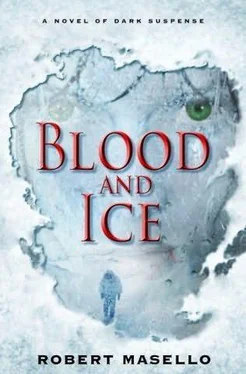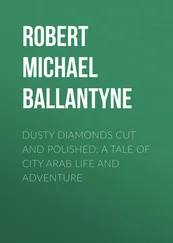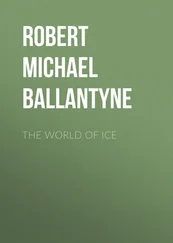Robert Masello - Blood and Ice
Здесь есть возможность читать онлайн «Robert Masello - Blood and Ice» весь текст электронной книги совершенно бесплатно (целиком полную версию без сокращений). В некоторых случаях можно слушать аудио, скачать через торрент в формате fb2 и присутствует краткое содержание. Жанр: Триллер, на английском языке. Описание произведения, (предисловие) а так же отзывы посетителей доступны на портале библиотеки ЛибКат.
- Название:Blood and Ice
- Автор:
- Жанр:
- Год:неизвестен
- ISBN:нет данных
- Рейтинг книги:3 / 5. Голосов: 1
-
Избранное:Добавить в избранное
- Отзывы:
-
Ваша оценка:
- 60
- 1
- 2
- 3
- 4
- 5
Blood and Ice: краткое содержание, описание и аннотация
Предлагаем к чтению аннотацию, описание, краткое содержание или предисловие (зависит от того, что написал сам автор книги «Blood and Ice»). Если вы не нашли необходимую информацию о книге — напишите в комментариях, мы постараемся отыскать её.
Blood and Ice — читать онлайн бесплатно полную книгу (весь текст) целиком
Ниже представлен текст книги, разбитый по страницам. Система сохранения места последней прочитанной страницы, позволяет с удобством читать онлайн бесплатно книгу «Blood and Ice», без необходимости каждый раз заново искать на чём Вы остановились. Поставьте закладку, и сможете в любой момент перейти на страницу, на которой закончили чтение.
Интервал:
Закладка:
Eighty-one years. Time enough for everyone she knew-and everyone who knew her-to be dead.
Then her thoughts leapt forward again, because the place had so clearly been deserted for years, probably decades, and how many more years did that suggest? How long was it, she wondered, that she had slept in the ice at the bottom of the ocean? Had centuries passed? What world was it that she now, however unhappily, inhabited?
She removed her glove and ran her fingers over the letters in the wood, as if to feel the truth of them. At first, even this sensation was unnerving, its tactile nature so overwhelming; she still wasn't yet used to feeling anything physical at all. After so long in the ice, her skin was new, almost foreign, even to her. Between Sinclair and herself, there had been little communion. Of course, there was always the question of propriety-their secret, and aborted, union in the Portuguese church counted for naught in her mind. And there was, in the frigid and awful place where she found herself now, nothing to kindle ardor of any kind… or nurture so much as a warm thought.
But in her heart, Eleanor knew that there was also something more than that standing in the way, something that would always be there, serving as a constant reminder and an ever-present reproach, and while it was the one thing that bound her to Sinclair, possibly for eternity, it was also the one thing that held them apart. Each could see, in the other's pallor and in the other's desperate eyes, a more urgent need and imperative desire. Tellingly, their lips were cold, their fingers like icicles, and their hearts as guarded as swords in their sheaths.
In that respect, little had changed since the Crimea. Deprivation was all she knew.
No sooner had the Nightingale nurses arrived at the Barrack Hospital in Scutari-so named because it had originally been the Selimiye Kislasi barracks of the Turkish army-than they discovered there was not enough of anything, whether it was bandages or blankets, medicines or stump pillows (to support what remained of amputated legs or arms). Eleanor had never seen, or even imagined, such squalor as she encountered there, and even some of the ladies who had served in workhouses and prisons declared that they, too, were shocked at the way the British wounded were treated. Men who had had limbs sawn off on the battlefield were left unattended and without medication of any kind, unable to move or even feed themselves. Soldiers who had succumbed to dysentery, uncontrollable diarrhea, or the mysterious “Crimea fever” that had raged through the ranks lay in the crowded corridors, on thin, blood-soaked pallets, begging in vain for a cup of water. The stench from the open sewers that ran below the barracks was unbearable, but the cold from the broken windows was so great that the men had taken to stuffing the holes with straw, which further intensified the miasma in the wards. Several of the more delicate ladies immediately fell ill themselves, and so became more burden than help from the very start.
Eleanor and Moira, like most of the others, were first put to work darning sheets and washing linen-not what they had come all that way to do. They had come to nurse the wounded men, to assist the doctors and medical staff with their surgical operations, but there was such hostility and suspicion on the part of the doctors that the nurses were refused admission to many of the wards and given no cooperation when they did gain entry.
“You'd think we was trying to steal their cuff links,” Moira said in disgust at having been turned away from one of the sickrooms filled with casualties. “I can hear the poor beggars lyin’ on their rags, pleadin’ for a bucket, or a drop of morphine, and here I am, not more than ten steps away, doing what? Mending a hole in a sock!”
At first, Eleanor, too, had been puzzled that Miss Nightingale did not fight harder on behalf of her charges, but she soon came to see the wisdom of it. The British army had its own ways, and they had been set in stone for hundreds of years; by limiting the challenge her nursing corps presented, and avoiding confrontation whenever possible, Miss Nightingale had been able to gradually and unalarmingly expand the duties and responsibilities of her staff. Once the military command had come to see the benefits of clean linen and fresh bandages, they also began to appreciate the advantages of the hot tea and cereal, beef broth and jelly that the nurses prepared in their makeshift kitchen. And the men-mutilated, suffering, many times breathing their last on a threadbare blanket, far from home-came to bless the nurses, in their shapeless smocks and their silly caps.
But it was Florence Nightingale, in particular, who had won their hearts and admiration forever. She had fearlessly entered even the fever wards, where the doctors themselves refused to go (their attitude being that the wretched souls inside would either struggle through it somehow, or else they would succumb, and that whatever the outcome, there was no point in their exposing themselves to the contagion). And although, for time immemorial, the officers had received the best available help and succor, while the privates and infantrymen were left to suffer the most horrible agonies with scarcely any attention paid to them at all, Miss Nightingale ministered to all the soldiers equally whether they were aristocrats or common conscripts. By breaking with such established protocols, she had proved herself a traitor to her own class, winning few friends among the officers, but an undying devotion among the troops-and from Eleanor, too.
On their fourth night in Scutari, Miss Nightingale had come upon Eleanor refilling her water jug from the trickling fountain in the hospital-the water was a cloudy yellow, and barely potable at all-and asked her to accompany her on her nightly rounds. She was wearing a long gray dress, with a white kerchief gathered around her dark hair, and holding a Turkish lantern by the curved handle on its flat, brass base. “And please bring the jug with you.”
Eleanor, who was seldom spoken to directly by Miss Nightingale, filled it to the brim, tucked a roll of bandages under her arm, and followed obediently a few steps behind. Eleanor was exhausted-it had been another grueling day-and although she knew that she would now be on her feet for hours, still she would not have given up this chance for anything. The Barrack Hospital was vast, and a tour of all its wards, which Miss Nightingale conducted nightly, was a journey of four miles. Wherever they went in the hospital, even the most antagonistic surgeons and impudent orderlies stood aside in Miss Nightingale's presence, and the two women were greeted instead by murmurs of thanks and signals of respect from the suffering soldiers. A boy who could not have been more than seventeen lay weeping in a cot, both of his legs gone below the knee, and Miss Nightingale stopped to comfort him and kiss his brow. Another soldier, missing an arm and an eye, she offered a cup of water, which he held in a shaking left hand, and for a moment Eleanor had to wonder if he was shaking from physical infirmity or from the shock of having such a well-bred lady tending to the likes of him.
Most of the wards were dark, save for the moonlight slanting through the broken windows and loose shutters, and Eleanor had to watch her feet lest she step on a sleeping, or dead, body. Miss Nightingale, a slight woman of erect carriage, seemed to move unerringly among the cots and patients, the glow of her lamp falling like a benediction on the dirty, bruised, and bloodied faces. More than once, Eleanor saw a soldier lean forward on the stump of a missing limb and bend his own lips to the air after she had passed. Why, they are kissing her shadow, she thought.
Several times, Miss Nightingale stopped to offer a thirsty soldier a drink from the jug, or to replace a filthy bandage with a fresh one, but given the immensity of the hospital, and the bottomless well of need, she could only offer a smile, or a word, to most of those she passed. But it was clear to Eleanor that this visit was a kind of covenant, a holy pact between Miss Nightingale and the soldiers, and she felt privileged to witness it.
Читать дальшеИнтервал:
Закладка:
Похожие книги на «Blood and Ice»
Представляем Вашему вниманию похожие книги на «Blood and Ice» списком для выбора. Мы отобрали схожую по названию и смыслу литературу в надежде предоставить читателям больше вариантов отыскать новые, интересные, ещё непрочитанные произведения.
Обсуждение, отзывы о книге «Blood and Ice» и просто собственные мнения читателей. Оставьте ваши комментарии, напишите, что Вы думаете о произведении, его смысле или главных героях. Укажите что конкретно понравилось, а что нет, и почему Вы так считаете.












